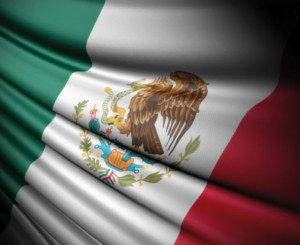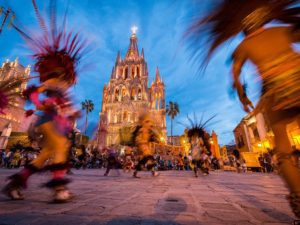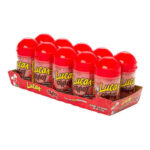Planning to relocate south of the border? This guide on How To Move To Mexico As An American is brought to you by gaymexico.net and offers comprehensive insights and practical advice for LGBTQ+ individuals seeking a vibrant, welcoming, and affordable lifestyle in Mexico. Discover the best destinations, understand the visa process, and learn how to integrate into the local community while enjoying the rich culture and unique experiences Mexico has to offer. Uncover LGBTQ+ havens, navigate legal landscapes, and access vital resources.
1. Why Consider Moving to Mexico as an American?
Mexico beckons with its vibrant culture, stunning landscapes, and affordability, making it an increasingly attractive destination for Americans, especially those in the LGBTQ+ community. But what makes Mexico such a compelling choice?
- Diverse and Beautiful Landscapes: Mexico offers everything from mountains and beaches to bustling cities and ancient pyramids.
- Lower Cost of Living: Expect to spend about 50% less than you would in a major U.S. city.
- Straightforward Residency: Mexico offers a permanent resident visa, which is not always available in other countries.
- Convenient Time Zone: Stay connected with the U.S. without drastic time differences.
- Easy Travel to the U.S.: Flights are frequent and relatively inexpensive.
- Welcoming Weather: San Miguel de Allende, for example, boasts some of the best weather imaginable.
- Remote Work Friendly: Reliable internet access allows you to maintain your career while living abroad.
- Warm Culture: Mexicans are known for their hospitality and rich cultural heritage.
- Progressive Politics: Mexico is willing to elect a woman President.
 Colorful buildings in San Miguel de Allende, Mexico, showcasing its colonial architecture and vibrant atmosphere.
Colorful buildings in San Miguel de Allende, Mexico, showcasing its colonial architecture and vibrant atmosphere.
2. Is Mexico Safe? Addressing Safety Concerns
Safety is a common concern for Americans considering a move to Mexico. While it’s true that certain areas have high crime rates, many parts of Mexico are generally safe, especially for tourists and expats.
- Understanding the Risks: Crime is a reality in some Mexican states, but it’s often linked to cartel activity, which primarily affects those involved in the drug trade.
- Official Data: According to data from the U.S. State Department, between January and June 2022, out of millions of American visitors, a small number experienced homicides.
- Cartel Dynamics: Cartels typically avoid targeting foreigners, as doing so is bad for their business.
- Focus on Safe Areas: Many cities and towns are known for their safety and welcoming atmosphere.
2.1. LGBTQ+ Safety in Mexico
Mexico has made significant strides in LGBTQ+ rights, with same-sex marriage legal across the country. However, societal attitudes can vary, and it’s essential to be aware of local customs.
- Legal Protections: Same-sex marriage is legal nationwide, and anti-discrimination laws are in place in many areas.
- Cultural Considerations: While major cities are generally accepting, smaller towns may be more conservative.
- Community Support: Cities like Puerto Vallarta and Mexico City have thriving LGBTQ+ communities.
3. Where Should You Move? Top Destinations in Mexico
Choosing the right location is crucial for a successful move. Mexico offers a diverse range of cities and towns, each with its unique charm.
3.1. San Miguel de Allende: Culture and Community
San Miguel de Allende, named “Best Small City in the World” multiple times by Condé Nast Traveller, is known for its culture, colonial architecture, and vibrant arts scene.
- Charming City: Known for culture, colonial architecture, art, music, gourmet food, and rooftop bars.
- Central Location: Conveniently located in central Mexico with access to two international airports.
- Expat Community: A large and welcoming expat community, including LGBTQ+ individuals.
3.2. Puerto Vallarta: Beachfront Bliss
Puerto Vallarta is a popular destination for LGBTQ+ travelers and expats, known for its beautiful beaches, vibrant nightlife, and accepting atmosphere.
- LGBTQ+ Haven: A well-established LGBTQ+ scene with numerous bars, clubs, and events.
- Beach Lifestyle: Enjoy stunning beaches and water activities.
- Welcoming Atmosphere: A generally tolerant and accepting community.
3.3. Mexico City: Urban Excitement
Mexico City is a sprawling metropolis with a rich history, diverse culture, and thriving LGBTQ+ scene.
- Cultural Hub: Museums, historical sites, and a vibrant arts scene.
- LGBTQ+ District: Zona Rosa is known for its LGBTQ+ bars, clubs, and restaurants.
- Cosmopolitan Vibe: A modern city with a diverse population and plenty to explore.
3.4. Guadalajara: Tradition and Modernity
Guadalajara, Mexico’s second-largest city, offers a blend of traditional Mexican culture and modern amenities.
- Cultural Heritage: Known for its mariachi music, tequila, and traditional architecture.
- LGBTQ+ Scene: A growing LGBTQ+ community with several bars and clubs.
- Affordable Living: A lower cost of living compared to Mexico City and other major cities.
3.5. Other Notable Locations
- Oaxaca: Rich in indigenous culture and known for its cuisine.
- Tulum: Beautiful beaches and a bohemian vibe.
- Merida: A colonial city with a relaxed pace of life.
- Lake Chapala: Home to one of the largest expat communities in Mexico.
 Panoramic view of Guanajuato, Mexico, showcasing the city's colorful buildings nestled in a valley.
Panoramic view of Guanajuato, Mexico, showcasing the city's colorful buildings nestled in a valley.
4. Understanding the Visa Process
Navigating the visa process is a crucial step in moving to Mexico. Mexico offers several types of visas, each with its requirements and restrictions.
- Tourist Visa (FMM): For stays of up to 180 days.
- Temporary Resident Visa: For those planning to live in Mexico for more than six months but less than four years.
- Permanent Resident Visa: For individuals seeking permanent residency.
4.1. Steps to Obtain a Visa
- Determine Your Visa Type: Choose the visa that best suits your needs and plans.
- Gather Required Documents: This typically includes a passport, proof of income or assets, and other supporting documents.
- Apply at a Mexican Consulate: Apply at a Mexican consulate in the U.S.
- Attend an Interview: You may be required to attend an interview as part of the application process.
- Receive Your Visa: If approved, you’ll receive your visa and can begin your move to Mexico.
4.2. Financial Requirements
To qualify for a Temporary or Permanent Resident Visa, you’ll need to demonstrate sufficient financial resources. This can include:
- Proof of Income: Monthly income from pensions, investments, or employment.
- Bank Statements: Showing sufficient funds in your bank accounts.
- Asset Documentation: Documentation of assets such as real estate or investments.
5. Finding a Place to Live
Whether you prefer renting or buying, Mexico offers a range of housing options to suit your needs and budget.
- Renting: A good option for those who want to explore different areas before committing to a purchase.
- Buying: Consider purchasing property if you plan to stay long-term.
5.1. Popular Websites for Finding Accommodation
- Airbnb: Great for short-term rentals and getting a feel for different neighborhoods.
- Craigslist: Local listings for rentals and real estate.
- Facebook Groups: Many expat groups on Facebook have listings for rentals and properties for sale.
- Local Real Estate Agents: Working with a local agent can provide valuable insights and help you navigate the market.
5.2. Understanding Real Estate Restrictions
- Restricted Zones: Foreigners cannot directly own property within 64 miles of an international border or 32 miles of the coastline.
- Fideicomiso: In restricted zones, you can use a bank trust (fideicomiso) to purchase property.
6. Healthcare in Mexico
Access to quality healthcare is an essential consideration when moving to a new country. Mexico offers a mix of public and private healthcare options.
- Public Healthcare (IMSS): Available to residents who contribute to the system.
- Private Healthcare: Offers faster service and access to a wider range of specialists.
- International Insurance: Many expats opt for international health insurance plans.
6.1. Cost of Healthcare
Healthcare in Mexico is generally less expensive than in the U.S.
- Doctor Visits: Can cost as little as $20 to $40.
- Hospital Stays: Significantly lower than in the U.S.
6.2. Important Considerations
- Medicare: Not accepted in Mexico.
- Language Barriers: Consider learning some basic Spanish to communicate with healthcare providers.
7. Cost of Living: Budgeting for Your Move
One of the main draws of moving to Mexico is the lower cost of living. However, it’s essential to budget carefully to ensure a comfortable lifestyle.
- Housing: Rent and property prices are generally lower than in the U.S.
- Food: Groceries and dining out can be significantly cheaper.
- Transportation: Public transportation is affordable, and taxis are readily available.
- Healthcare: As mentioned, healthcare costs are lower than in the U.S.
- Entertainment: Enjoying cultural events, dining out, and other activities is generally more affordable.
7.1. Sample Monthly Budget (USD)
| Expense | Low | Medium | High |
|---|---|---|---|
| Rent | $500 | $1,000 | $2,000 |
| Groceries | $200 | $400 | $600 |
| Transportation | $50 | $100 | $200 |
| Healthcare | $50 | $100 | $200 |
| Entertainment | $100 | $200 | $400 |
| Total | $900 | $1,800 | $3,400 |
8. Navigating Daily Life in Mexico
Adjusting to daily life in Mexico involves understanding local customs, learning some Spanish, and adapting to a different pace of life.
- Learn Spanish: While English is spoken in tourist areas, knowing Spanish will greatly enhance your experience.
- Embrace the Culture: Take the time to learn about Mexican culture and traditions.
- Be Patient: Things may move at a slower pace than you’re used to.
- Build a Community: Connect with other expats and locals to build a support network.
8.1. Useful Resources for Expats
- Expat Forums: Online forums where you can connect with other expats and ask questions.
- Facebook Groups: Many expat groups on Facebook offer support and information.
- Language Exchange Programs: Opportunities to practice your Spanish and meet new people.
9. LGBTQ+ Life in Mexico: Finding Community and Support
Mexico has a growing LGBTQ+ community with vibrant scenes in major cities.
- Puerto Vallarta: Known as one of the most LGBTQ+-friendly cities in the world.
- Mexico City: The Zona Rosa is a hub of LGBTQ+ activity.
- Guadalajara: A growing LGBTQ+ scene with several bars and clubs.
9.1. LGBTQ+ Organizations in Mexico
- All Out: An international LGBTQ+ rights organization working in Mexico.
- Letra S: A leading LGBTQ+ organization in Mexico City.
9.2. Legal Rights and Protections
- Same-Sex Marriage: Legal nationwide.
- Anti-Discrimination Laws: In place in many areas.
10. Working and Doing Business in Mexico
If you plan to work in Mexico, you’ll need to obtain the appropriate visa and understand the local labor laws.
- Remote Work: Many expats work remotely for companies in the U.S.
- Local Employment: Opportunities exist in various sectors, particularly in tourism and hospitality.
- Starting a Business: Consider starting your own business in Mexico.
10.1. Tax Implications
- Non-Residents: Taxed only on income earned in Mexico.
- Residents: Taxed on worldwide income.
10.2. Resources for Entrepreneurs
- Mexican Chamber of Commerce: Provides resources and support for businesses in Mexico.
- SCORE: Offers free business mentoring and advice.
11. Staying Connected: Internet and Communication
Reliable internet and communication services are essential for staying connected with family and friends back home.
- Internet Access: Generally good in major cities and tourist areas.
- Mobile Phones: Your U.S. phone may work in Mexico, but watch out for international roaming fees.
- Local SIM Cards: A more affordable option for using your phone in Mexico.
11.1. Internet Providers
- Telmex: One of the largest internet providers in Mexico.
- Izzi: Another popular option for internet and cable services.
12. Transportation: Getting Around in Mexico
Mexico has a well-developed transportation system that makes it easy to get around.
- Air Travel: Numerous domestic and international flights.
- Buses: A comprehensive bus system with both economy and luxury options.
- Taxis and Ride-Sharing: Readily available in most cities.
- Driving: Consider bringing your car or buying one locally.
12.1. Important Considerations for Drivers
- Mexican Driver’s License: Required for long-term residents.
- Car Insurance: Ensure you have adequate car insurance.
- Road Conditions: Can vary, particularly in rural areas.
13. Overcoming Culture Shock
Moving to a new country can be exciting, but it can also lead to culture shock. Be prepared for a period of adjustment as you adapt to new customs and ways of life.
- Homesickness: It’s normal to miss your home country.
- Language Barriers: Frustration can arise when you struggle to communicate.
- Cultural Differences: Be open to new experiences and ways of doing things.
13.1. Tips for Dealing with Culture Shock
- Stay Connected: Maintain relationships with friends and family back home.
- Explore Your New Home: Get out and explore your surroundings.
- Find a Routine: Establish a daily routine to provide structure and stability.
- Be Patient: Give yourself time to adjust.
14. Common Mistakes to Avoid
- Not Learning Spanish: Knowing Spanish is essential for daily life.
- Ignoring Local Customs: Take the time to learn about Mexican culture.
- Not Budgeting Carefully: Plan your finances carefully.
- Failing to Obtain the Right Visa: Ensure you have the appropriate visa for your stay.
15. Resources and Support for American Expats in Mexico
Numerous resources are available to help American expats settle into life in Mexico.
- Expat Groups: Connect with other expats for support and advice.
- Online Forums: Online forums provide a wealth of information.
- U.S. Embassy: The U.S. Embassy can provide assistance with various issues.
Address: 3255 Wilshire Blvd, Los Angeles, CA 90010, United States
Phone: +1 (213) 380-2177
Website: gaymexico.net
FAQ: Moving to Mexico as an American
1. Is it safe for Americans to live in Mexico?
Yes, many areas in Mexico are safe for Americans. While some regions have high crime rates, popular expat destinations are generally secure.
2. What are the main reasons Americans move to Mexico?
Lower cost of living, diverse culture, beautiful landscapes, and a relaxed lifestyle.
3. What type of visa do I need to live in Mexico?
For stays longer than 180 days, you’ll need either a Temporary Resident Visa or a Permanent Resident Visa.
4. How much money do I need to move to Mexico?
The amount varies, but generally, you’ll need to show proof of income or assets to qualify for a residency visa.
5. What are the most popular cities for American expats in Mexico?
San Miguel de Allende, Puerto Vallarta, Mexico City, and Guadalajara.
6. Can I buy property in Mexico as an American?
Yes, but restrictions apply within 64 miles of international borders and 32 miles of coastlines, where you’ll need a fideicomiso.
7. Is healthcare in Mexico affordable?
Yes, healthcare costs are significantly lower than in the U.S.
8. Do I need to speak Spanish to live in Mexico?
While not always necessary, learning Spanish will greatly enhance your experience.
9. Is Mexico LGBTQ+-friendly?
Yes, many cities in Mexico have thriving LGBTQ+ communities and legal protections.
10. What are the biggest challenges of moving to Mexico?
Culture shock, language barriers, and adjusting to a different pace of life.
Conclusion: Your Mexican Adventure Awaits
Moving to Mexico as an American can be a rewarding experience, offering a vibrant culture, affordable lifestyle, and welcoming community. Armed with the right information and a sense of adventure, you can make your move a success. Visit gaymexico.net to discover even more in-depth guides, explore LGBTQ+-friendly destinations, find upcoming events, and connect with a supportive community ready to welcome you to Mexico.
